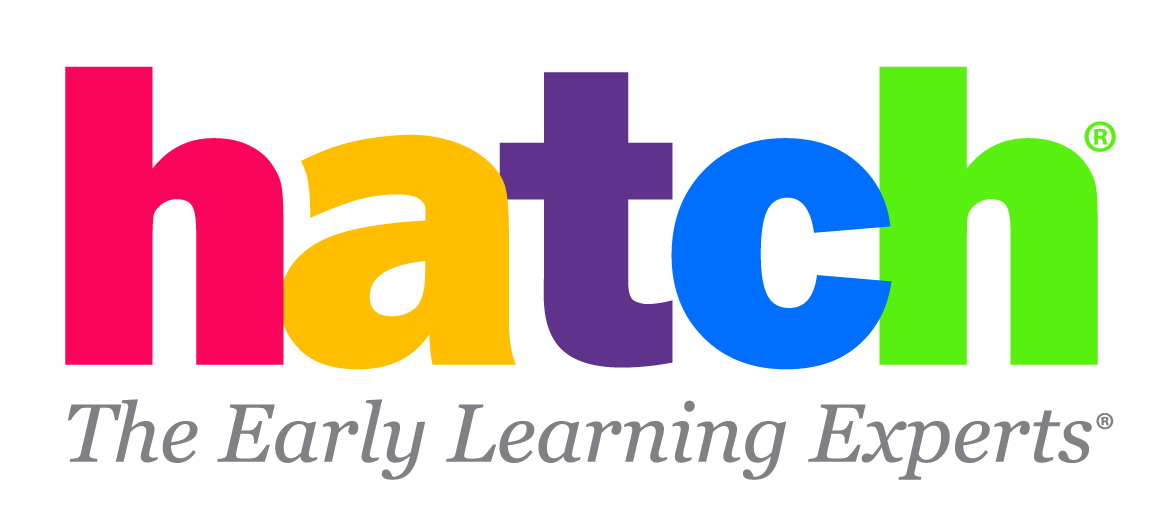Reading is a fundamental skill that lays the groundwork for a successful academic journey and a fulfilling life. In today's fast-paced world, the ability to read proficiently is crucial for personal and academic growth. However, not all children find learning to read an easy task. The science of reading is a comprehensive approach to literacy instruction that aims to identify and address the fundamental skills necessary for reading success. At Hatch, we support the key principles of the science of reading that nurture the essential literacy blocks and their significance in fostering strong foundational language and literacy skills for children.
Hatch has recently partnered with Code-Ed, creators of renowned print-based literacy resources developed by Joy Allcock, M.Ed., to announce a new collaboration that is poised to reshape early literacy education. The companies are blending Code-Ed’s collections, Key Foundations™ and The Code Is the Key™, with Hatch’s interactive digital learning platform, Ignite by Hatch™, giving students who are learning to read complete and comprehensive support that is aligned to the science of reading.
Understanding the Science of Reading
In recent years, the science of reading approach has garnered significant attention among educators, researchers, and policymakers; although, there are various approaches to literacy instruction. The term science of reading refers to an evidence-based method of teaching reading, drawing from research in fields such as cognitive psychology, linguistics, and neuroscience (Jiban, 2022). This approach is not new and has long been supported by research. An influential example is the National Reading Panel (NRP) report released in 2000 after being commissioned by the U.S. Congress in 1997. The NRP extensively reviewed existing research and identified the crucial components of effective reading instruction that include phonological awareness, phonics, fluency, vocabulary, and comprehension (National Reading Panel, 2000). The report emphasized the scientific evidence backing the importance of explicit and systematic phonics instruction in reading education. Since then, numerous studies and meta-analyses have further reinforced the significance of evidence-based reading instruction, leading to a growing emphasis on the science of reading in literacy education.
The Importance of the Science of Reading Approach
Research indicates that a significant number of students struggle with reading due to inadequate instruction. The Albert Shanker Institute's recent report (Neuman et. al., 2023) highlights the importance of adopting evidence-based practices, such as the science of reading, to address this issue effectively:
- Addressing the reading gap: By implementing the science of reading approach, educators can identify and support struggling readers early on. Targeted interventions based on scientific evidence can help close the reading gap and ensure that all children can become proficient readers.
- Fostering teacher expertise: The science of reading provides educators with a research-driven framework for literacy instruction. Equipping teachers with the knowledge and tools to implement evidence-based practices enhances their effectiveness in the classroom.
- Individualized instruction: The science of reading recognizes that each child learns differently. By tailoring instruction to meet the specific needs of students, educators can create a more inclusive and supportive learning environment.
- Long-term academic success: Proficient reading skills are linked to academic achievement across all subjects. By investing in the science of reading approach, schools can lay a strong foundation for students' long-term success in their educational journeys.
At Hatch, our evidence-based and research-backed early learning technology solutions for classrooms are in complete alignment with supporting instructional practices to address learning gaps in areas like language and literacy. We support educators with real-time, targeted interventions for children struggling with specific skills, and we provide customized professional learning opportunities focused on the real needs of educators, including topics like the science of reading. We even go further to consistently guide educators on tracking the growth and progress of children as they interact with our technology, with success shown in our years of positive outcomes and development of young learners.
The Science of Reading Within Hatch
Specific to the science of reading, Hatch products are designed to build both pre-foundational and foundational skills. Within the science of reading approach to literacy instruction, these skills are the fundamental literacy and language blocks. Our dynamic and engaging solutions expose children to tailored experiences to practice and develop their reading skills using the following components:
- Phonemic awareness and phonics: Phonemic awareness refers to the ability to recognize and manipulate individual sounds (phonemes) in spoken language. Research has shown that children who have well-developed phonemic awareness are better prepared to understand the relationship between letters and sounds, which is essential for reading and spelling.
Hatch recognizes the significance of phonemic awareness and phonics in literacy development. Through engaging experiences, Hatch exposes children to activities that help them practice and develop their sound recognition and blending skills. By mastering phonemic awareness and phonics, children lay a solid foundation for their reading journeys.
- Vocabulary and comprehension: Building robust vocabulary and comprehension skills are crucial aspects of becoming proficient readers. A broad vocabulary allows children to understand the meanings of words they encounter in texts, while comprehension skills enable them to extract meaning from what they read.
Hatch acknowledges the importance of vocabulary and comprehension development. We offer experiences that expose children to a rich and diverse set of words, as well as activities that promote a deep understanding of texts. As children progress through Hatch's carefully curated experiences, their vocabulary and comprehension skills flourish, setting them up for reading success.
- Fluency and decoding skills: Fluency refers to the ability to read with speed, accuracy, and expression. Fluent readers can decode words effortlessly and focus on understanding the text's meaning. Decoding skills, which involve the ability to apply letter–sound knowledge to read unfamiliar words, are integral to fluency.
Hatch embeds decoding practice and contextualized reading opportunities within its experiences through targeted activities. This approach enables children to become confident and expressive readers, making their reading experiences more enjoyable and productive. Hatch solutions foster fluency by providing children with ample reading practice.
Hatch solutions go beyond isolated exercises, offering contextualized reading experiences that simulate real-world reading scenarios. By immersing children in meaningful reading opportunities, we help them apply their newly acquired skills in authentic contexts. The science of reading is a powerful tool that unlocks the potential of every child, ensuring that they have the foundational literacy skills needed for academic and personal growth. Hatch's products align perfectly with the principles of the science of reading, offering engaging experiences that foster phonemic awareness, phonics, vocabulary, comprehension, and fluency skills.
The science of reading is one approach to literacy instruction that focuses on brain science to ensure that children build the foundational skills critical for reading success. While Hatch does support this approach, we also understand that there is no one-size-fits-all instructional approach to ensure that all children are reading ready. However, we do know that by nurturing these fundamental literacy blocks, we empower children to thrive in their academic pursuits and beyond. With Hatch’s evidence-based and personalized approach, children embark on a rewarding journey towards becoming confident and proficient readers. Through embedding the science of reading within Hatch, we can unlock the potential of every young learner and empower them with the gift of literacy, laying the groundwork for a bright and promising future.
References
Jiban, C. (2022, January 25). The science of reading explained. NWEA Teach. Learn. Grow. blog. https://www.nwea.org/blog/2022/the-science-of-reading-explained/
National Reading Panel. (2000). Teaching children to read: An evidence-based assessment of the scientific research literature on reading and its implications for reading instruction. Reports of the subgroups. https://www.nichd.nih.gov/sites/default/files/publications/pubs/nrp/Documents/report.pdf
Neuman, S. B., Quintero, E., & Reist, K. (2023). Reading reform across America: A survey of state legislation. Albert Shanker Institute. https://www.shankerinstitute.org/sites/default/files/2023-07/ReadingReform%20ShankerInstitute%20FullReport%20072723.pdf

